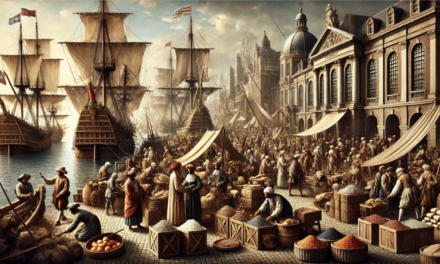THE ROLE OF NARRATIVES, NARRATIVE IDENTITY, AND TRIBALISM IN INTERNATIONAL COOPERATION AND POLICYMAKING
INTRODUCTION:
This report explores the idea of challenging the “West is Best” attitude and the potential benefits of an international and interdisciplinary academic study to re-evaluate this perspective. It discusses how narratives, narrative identity, and tribalism shape people’s perceptions and decision-making in international negotiations and highlights the importance of incorporating these concepts in the proposed research program.
BACKGROUND:
The “Winds of Change” speech by Harold Macmillan in 1960 marked a shift in attitudes towards colonialism and independence movements in Africa. Today, a growing body of evidence suggests that the “West is Best” narrative needs a similar reassessment. Researchers from various fields, such as anthropology, neuroscience, biology, psychology, history, politics, international law, and social sciences, have provided insights that challenge this narrative. Notable scholars include Benedict Anderson, David Berreby, Iain McGilchrist, Dan M. Kahan, Samuel P. Huntington, Robert D. Putnam, Martha C. Nussbaum, and Joseph E. Stiglitz.
THE INFLUENCE OF DOMINANT NARRATIVES AND TRIBALISM IN INTERNATIONAL RELATIONS:
Dominant narratives, such as the “West is Best,” can lead to ethnocentric outlooks and reinforce stereotypes in international relations. Tribalism exacerbates in-group/out-group dynamics, potentially resulting in biased decision-making, unequal treatment, and conflict between nations. Recognizing the power of narratives, narrative identity, and tribalism in international negotiations can foster more effective cooperation and decision-making.
GLOBAL CHALLENGES AND INTERNATIONAL SOLUTIONS:
Current global challenges, such as climate change, economic inequality, and biodiversity loss, require international cooperation and solutions. Progress on the Sustainable Development Goals (SDGs) has been made, but continued efforts are needed to achieve the targets by 2030. Promoting dialogue, understanding, and empathy among nations by examining the complex interplay between narratives, narrative identity, and tribalism can contribute to more constructive and positive international relations.
RESEARCH PROPOSAL:
TITLE:
Rethinking Narratives, Narrative Identity, and Tribalism in International Cooperation and Policymaking
OVERVIEW:
The research project investigates the role of narratives, narrative identity, and tribalism in shaping perceptions, attitudes, and decision-making in international cooperation and policymaking. It seeks to explore the power of narratives and tribalism in fostering or hindering practical collaboration and develop strategies for promoting greater understanding, inclusivity, and mutual respect in international negotiations.
OBJECTIVES:
- Examine the influence of narratives, narrative identity, and tribalism on individuals’ and groups’ perceptions of themselves and others in international cooperation and policymaking.
- Identify and challenge dominant or harmful narratives contributing to bias, ethnocentrism, inequality, or misunderstanding.
- Investigate the potential for alternative narratives, narrative identities, and approaches to tribalism to foster greater empathy, respect, and cooperation in international negotiations.
- Develop evidence-based recommendations for policymakers and negotiators to facilitate more inclusive, culturally sensitive, and effective policymaking and negotiation strategies.
METHODOLOGY:
The research project will employ a mixed-methods approach, incorporating qualitative and quantitative research methods, such as literature reviews, case studies, surveys, interviews, and experimental research.
EXPECTED OUTCOMES:
- A comprehensive understanding of the role of narratives, narrative identity, and tribalism in international cooperation and policymaking.
- Identification of dominant or harmful narratives that hinder practical cooperation and strategies for challenging and replacing them with more inclusive and constructive narratives.
- Evidence-based recommendations for policymakers and negotiators to incorporate narrative awareness, cultural sensitivity, and an understanding of tribalism into their strategies, fostering greater understanding and cooperation in international negotiations.
- Contributions to academic and policy debates on the importance of narratives, narrative identity, and tribalism in international relations, diplomacy, and policymaking.
CONCLUSION:
The proposed research project addresses the critical role of narratives, narrative identity, and tribalism in shaping international cooperation and policymaking. By examining the complex interplay between individual and collective stories and the dynamics of in-group and out-group formation, this project aims to contribute to developing more inclusive, empathetic, and practical strategies for addressing pressing global challenges. By challenging the “West is Best” narrative and fostering a deeper understanding of diverse perspectives, we can promote greater cooperation and collaboration in the international arena.
Terry Cooke-Davies
terry@insearchofwisdom.online
April 2023






